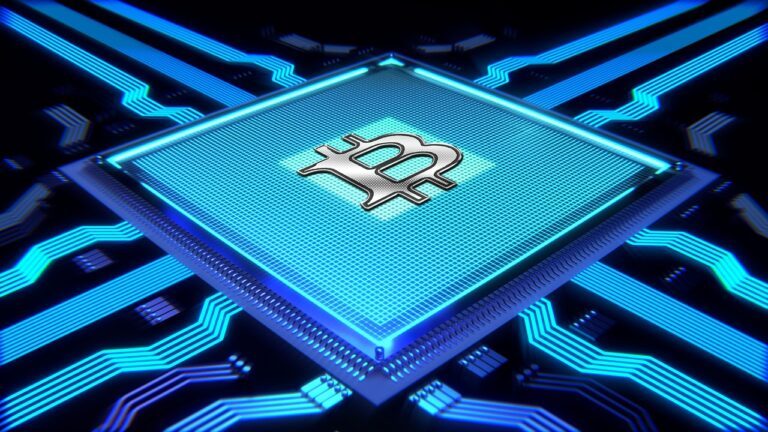Deutsche Telekom, Europe’s largest telecommunication provider, has announced plans to start mining Bitcoin.
Established in 1995 following the privatization of the former state-owned monopoly Deutsche Bundespost, Deutsche Telekom has grown to become one of the world’s leading integrated telecommunications providers. The company offers a wide range of services, including fixed-line and mobile communications, broadband Internet, and IPTV services for consumers, as well as IT services and solutions for business customers.
With its headquarters in Bonn, Deutsche Telekom operates in numerous countries around the world, serving millions of customers. The company’s international brand, T-Mobile, is particularly well-known in Europe and the United States. In addition to its core telecom operations, Deutsche Telekom is actively involved in advancing digitalization and innovation, investing heavily in next-generation technologies such as 5G networks and the Internet of Things (IoT).
This announcement was made by Dirk Röder, head of Web3 infrastructure and solutions at Deutsche Telekom-owned subsidiary T-Systems MMS, during the BTC Prague conference. Röder, wearing a shirt emblazoned with a pink Bitcoin graphic styled after Deutsche Telekom’s logo, revealed that the company has been operating a Bitcoin node and Bitcoin Lightning nodes since 2023.
With a hint of excitement, Röder disclosed, “With a heart full of […] pride, I would like to let you in on a little secret: we will engage in ‘digital monetary photosynthesis’ soon.” When pressed for details by Bitcoin influencer Joe Nakamoto, Röder confirmed, “We will,” signaling Deutsche Telekom’s imminent entry into Bitcoin mining.
On May 32, 2023, Deutsche Telekom announced its role as a validator on Polygon, a prominent Ethereum Layer-2 scaling platform. This move marks an expansion of Deutsche Telekom’s involvement in blockchain technology and demonstrates its support for the Polygon ecosystem.
This meant that Deutsche Telekom’s subsidiary, Deutsche Telekom MMS, was extending its validation services to the Polygon network, in addition to its existing work with Q, Flow, Celo, Chainlink, and Ethereum. As one of only 100 validators on the Polygon Proof-of-Stake (PoS) network, Deutsche Telekom MMS provides both staking and validation services, including support for Polygon’s Supernets solutions.
Dirk Röder, Head of the Blockchain Solutions Center at Deutsche Telekom, emphasized the advantages of the Polygon ecosystem, noting its developer-friendly and resource-efficient nature, as well as its foundation on Ethereum’s high security standards. He stated that this collaboration is a significant step for Deutsche Telekom MMS in harnessing the full potential of blockchain technology and enabling applications suitable for large-scale deployment. Röder also highlighted Deutsche Telekom MMS’s contribution to Polygon staking, which supports the security and decentralization of the blockchain.
Michael Blank, Chief Operating Officer at Polygon Labs, expressed excitement about the collaboration, recognizing Deutsche Telekom’s global leadership in telecommunications. He noted that Deutsche Telekom’s participation as a validator on the Polygon network would facilitate broader business adoption of blockchain technology and enhance consumer empowerment through the benefits of web3 technology.
In February 2024, Deutsche Telekom announced that it had become the first corporate partner of the Fetch.ai Foundation, an initiative focused on advancing AI and Web3 technologies on the Fetch.ai network. The Foundation, a non-profit organization based in the Netherlands, was founded by Bosch and Fetch.ai. It aims to promote an open platform that is accessible to a broad user base.
Deutsche Telekom’s subsidiary, MMS, has taken on the role of a validator, helping to secure the decentralized Fetch.ai blockchain. This move is part of a strategic partnership involving Deutsche Telekom, Bosch, and Fetch.ai. Deutsche Telekom MMS is responsible for maintaining network security as devices, individuals, and services integrate into the blockchain.
The technology underpinning this project relies on AI-driven autonomous agents that manage resources, conduct transactions, and analyze traffic flows. Fetch.ai’s services are already being used in various sectors, including healthcare, automotive, supply chain management, and digital identities.
Dirk Röder, Head of the Web3 Infrastructure & Solutions Team at Deutsche Telekom MMS, commented on the collaboration, stating that it merges industrial applications with the Internet of Things. According to Röder, autonomous agents will streamline industrial services, simplify processes, and enhance security and scalability through blockchain technology.
Featured Image via Pixabay









